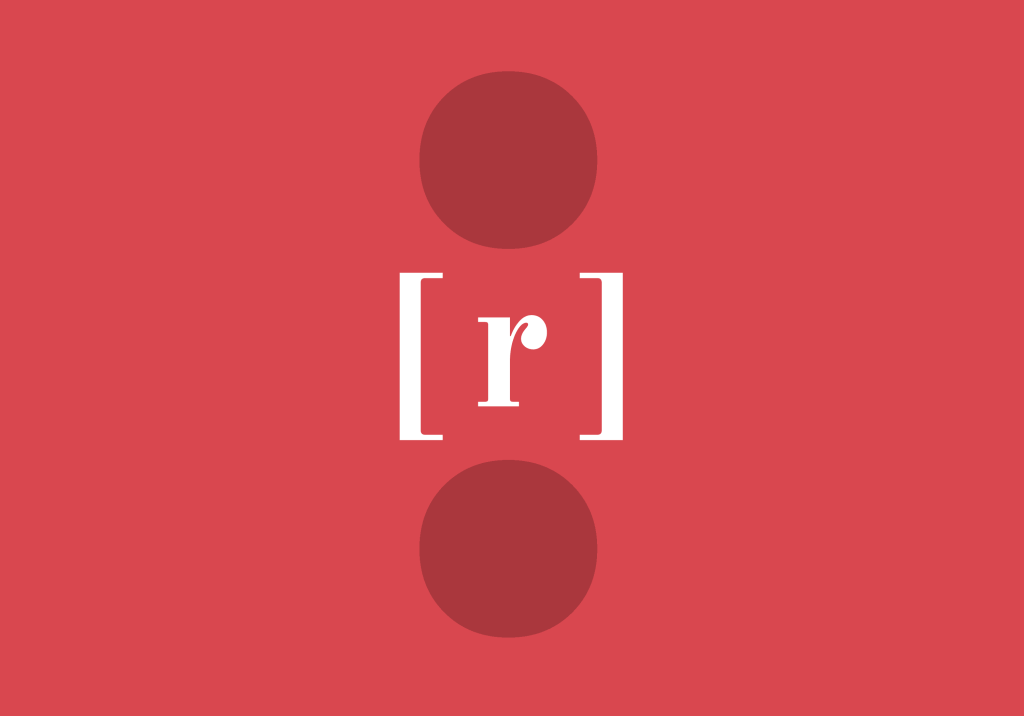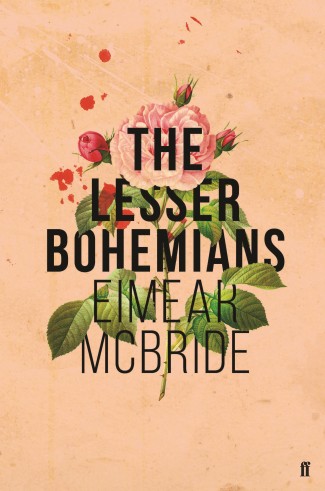You pour yourself into sentences about sex. You tip out, mix with the author’s words and redden as you ride the train home. The Lesser Bohemians is almost relentlessly concerned with the love and sex lives of its characters, and so it throws your own into relief, makes you realise you’re carrying it as a comparison, held up and placed against the page.
At least, it does for the first half. The first 150-or-so pages of Eimear McBride’s second novel are a breathily utopian account of an 18-year old Irish woman’s arrival in mid-90s London. The sex, the sleepless nights, the street names so eagerly recalled like scars across a half-stranger’s body. Eily, aforementioned 18-year old, drama student and the head we inhabit, starts the novel as a virgin but she is far flung from uptight innocence. She is hungry for experiences. Sex, inevitably. But also the city. There’s a potency to McBride’s playfully kinetic phrasing that captures the cocky drifting of those first few months in London. 18 and all the senses speaking names like Barbican and Kentish Town and The National.
Eily soon finds herself in a relationship with Stephen, a 38-year-old actor who’s somewhat famous, although not famous enough to stray onto Notting Hill territory. They embark on a tumultuous relationship that makes up the novel, although this is a slightly reductive way to describe the spout of bodies that pass through the prose. There’s a lot of pushing up against the walls, and lying down, and wanting, and trying, and forcing away and pulling close. “Straight after. Jesus. I cover my face. Sift through surprise for the way my blood beats. Fragile in the wither,” Eily says, after a memorable bout of oral sex.
The Lesser Bohemians casts itself as a much more hopeful vision than A Girl is a Half-Formed Thing. There’s a unabashed positivity to the whole endeavour, which may seen like a strange way to talk about a story that, as it progresses, touches on the psychological effects of incestuous child abuse. Eily gives herself over to the sensations. Feels them so strongly, so fully. At times it’s almost saccharine, and I longed for a few descriptions of sex in the mould of Samuel Beckett (“like trying to put a pillow into a pillow-case, having it bend in two,” he writes in Malone Dies). But there’s a refreshing unguardedness to Eily’s interiority that made it harder to keep a distance from the writing. It felt intimate. I poured myself in.
But then comes the novel’s volta, which happens through a prolonged monologue offered up by Stephen. We are relayed his history of abuse at the hands of his mother, his escape to London, his years of promiscuity and drug addiction, his tortuous relationship with his ex-wife and the forceful separation with his daughter. It’s a clear jolt to the novel’s previous rhythm, but it ends up capsizing the book and giving the ensuing sections a confused sense of focus.
This is most apparently in the change in language, with Eily’s jumpy fragments replaced with a much clearer narrative perspective. The writing here is absorbing on its own terms, but it sits awkwardly beside the other sections. When we resurface, it’s hard to buy back into the style of Eily’s perspective. Why, if Stephen’s story is funnelled through her hearing of it, is it controlled in a way no other speech or conversation is? It creates a clear break in tone, but it also runs to risk of making Eily’s register seem more like an affectation than a genuine reflection of her impressions.
The high-stakes drama of Stephen’s life does throw an interesting light on what has until that point been seen as the centre of the universe. It jolts the sense of importance given to sexual passion, and darkens it by bringing questions of addiction and psychological damage into play. There’s an issue, though, of this overpowering the narrative. Instead of Eily’s passage from girlhood to womanhood, the focus is shifted to Stephen and his rather excessive series of personal woes. The handling of sex is powerful for its openness, but coupled with the soapy melodrama of Stephen’s life and it all just becomes a bit over the top, capped off with an ending that’s too neat to be satisfying.
“When I first came here,” Eily says at one point, “I wanted the world to look at me and now I wanted to be the eye instead.” In some ways, the move in focus to Stephen makes a development from Eily as performer to Eily as writer. Less of a body and more of an eye. It still ends up with her playing second fiddle to Stephen and his daughter, however, and this is unfortunate when the earlier sections bring so much light to bear on her thoughts and physicality, the disjunction between the two, the moment-to-moment shifts in feeling that come from being with another body in another city.
A luminous book, then, but one that falls into shades of melodrama, which overload the heart-on-the-sleeve rawness of Eily’s feelings and go some way to undo the glint of those early encounters. It’s a pity because McBride’s turn of phrase is often brilliant (“I’ve never seen anyone get drunk this hard, like hammering nails down into his head,” Eily at one point remarks on Stephen). But the sex is enough, as it were, and The Lesser Bohemians is a book that invites you to consider, and reconsider, how we think about love and bodies.
Eimear McBride was born in 1976. Her childhood was spent mostly in Tubbercurry, Co. Sligo, and later in Castlebar, Co. Mayo. In 1994, aged seventeen, she went to London and spent the next three years studying acting at Drama Centre. Much of her twenties were spent temping and travelling. At twenty-seven she wrote A Girl is a Half-formed Thing. She moved to Cork in 2006, and to Norwich in 2011, where she still lives with her husband and daughter.
Thomas McMullan is a London-based writer. He has been published by Lighthouse, 3:AM Magazine, The Stockholm Review, The Literateur and Cadaverine Magazine, and is a contributing editor for minor literature[s]. He contributes to The Guardian and is published in Best British Short Stories 2016. http://thomasmcmullan.com . @thomas_mac


